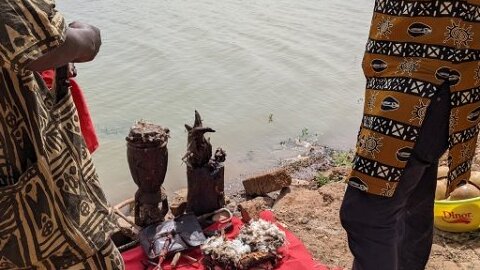
Tanzania: Fighting Marburg Virus in Fragile Health System
Tanzania finds itself on the front lines of an unexpected but by no means trivial battle: the Marburg virus. As the world struggles to recover from the ravages of the Covid-19 pandemic, this pathogen, devoid of an effective cure, casts a worrying shadow over the country's public health. The authorities, aware of the urgency of the situation, are organizing and mobilizing to face this threat. But can we hope for real resilience in a landscape where health systems are often fragile?
A state of alert rather than panic
Faced with the emergence of the Marburg virus, the Tanzanian authorities did not let themselves be overwhelmed by panic. Containment measures were quickly put in place, including the isolation of patients in appropriate care centers. This was, in fact, a real test for a health system already tested by more challenges. A call for vigilance resonated throughout the country: citizens should report any suggestive symptoms. In an almost humorous tone, one could say that Tanzania is currently testing the famous theory of 'prevention is better than cure'... But would it really be enough?
Education and awareness: the weapons of the future
In the fight against this fearsome virus, education will probably be the key. Many people are still unaware of what the Marburg virus really is, its symptoms, and, most importantly, how to protect themselves. Tanzania is therefore rolling out an unprecedented awareness campaign, with messages adapted to the local culture. Illustrated posters, humorous radio spots, and even videos on social networks are being broadcast to encourage people to become aware of the issues at stake. If only the government could find the same zeal for other endemic problems, such as tropical diseases or water shortages, the country would breathe a little easier.
On the ground, the reality is a little less rosy.
Despite all these efforts, the field is another battle. Health infrastructure suffers from a lack of resources, and rurality sometimes makes access to care difficult. Doctors, already understaffed, are often left to fend for themselves in the face of diseases they do not always understand. In this context, the question then becomes: does Tanzania really have the tools to deal with an epidemic? And if it does manage to weather this storm, what will be the price to pay in terms of human suffering and economic losses?
In short, Tanzania’s struggle to navigate this health crisis is likely to be fraught with challenges. It is time for collective mobilization, but also for reflection: How can we turn this fight against the Marburg virus into an opportunity to improve health care in the long term? The answer to this question could determine not only the country’s ability to overcome the current crisis, but also to build a more resilient future in the face of future health threats.



Leave a comment
This site is protected by hCaptcha and the hCaptcha Privacy Policy and Terms of Service apply.